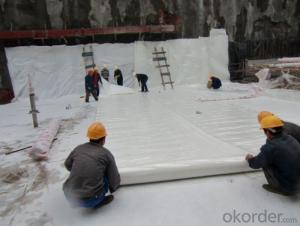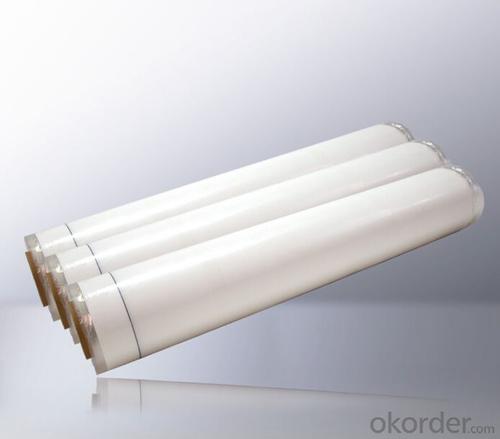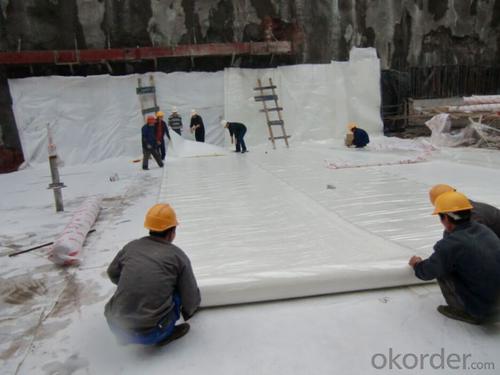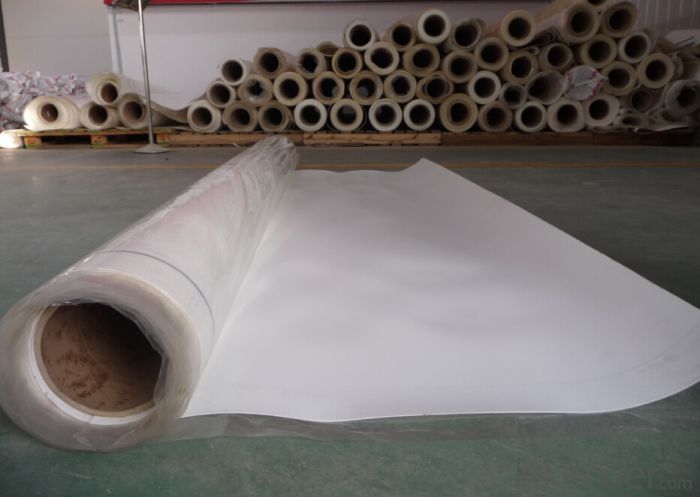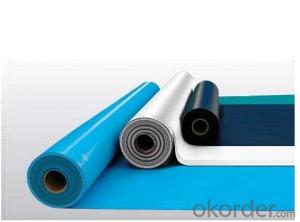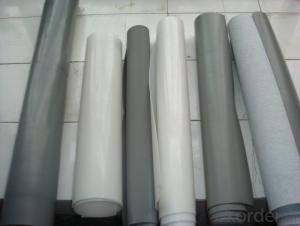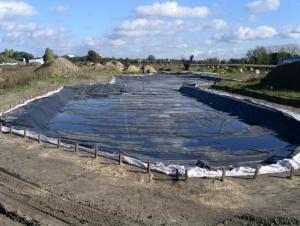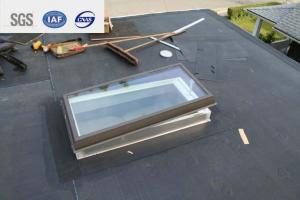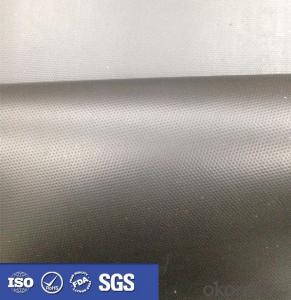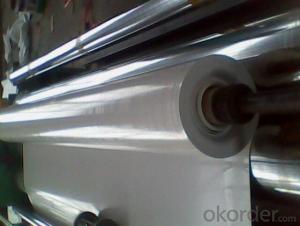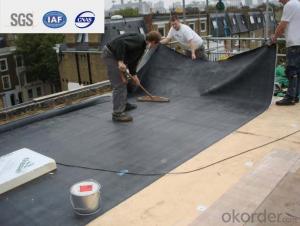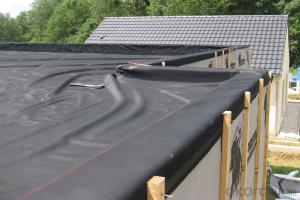HDPE Self-adhesive Waterproof Membrane 1.2mm
- Loading Port:
- China Main Port
- Payment Terms:
- TT or LC
- Min Order Qty:
- 5000 m²
- Supply Capability:
- 100000 m²/month
OKorder Service Pledge
OKorder Financial Service
You Might Also Like
HDPE Waterproof Membrane Introduction:
HDPE Self-adhesive Waterproof Membrane is specially used in underground project, it can bond with concrete layer tightly. After Membrane bonding with concrete, water can be blocked between membrane and concrete, which can improve the reliability.
HDPE Waterproof Membrane Applications:
Basement,Subway,Tunnel Cave, Other underground public constructions.
HDPE Waterproof Membrane Advantages:
1. Good bonding with concrete applied on membrane, to block water between membrane and concrete further to protect concrete effectively.
2. Low flatness requirement to substrate, reliable overlapping; mechanical fixing, easy application.
3. Sound anti-puncture performance.
4. Adaptable to settlement and distortion.
5. Weather-resisting and anti-UV.
6. Resist to acid, alkali, mold.
7. Eco-friendly material
HDPE Waterproof Membrane Specifications:
| Width(m) | Length(m) | Thickness(mm) |
| 1.2 or 2.4 | 20 or more | 1.2 or 1.5 |
FAQ:
Q: What kind of payment way your company accept?
A: TT, LC, etc
Q: Can I do the third party testing before loading?
A: Yes, we could accept the third party testing.
Q: Which kind of payment in your company?
A: We could accept TT, LC at sight, etc.
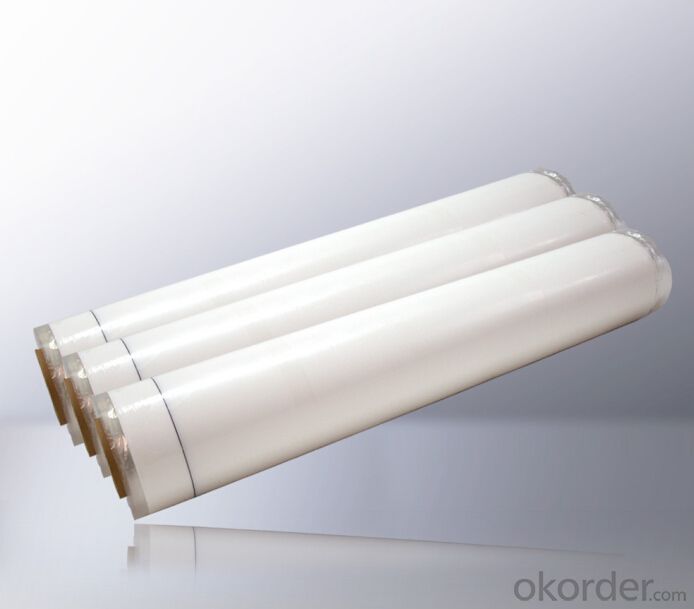
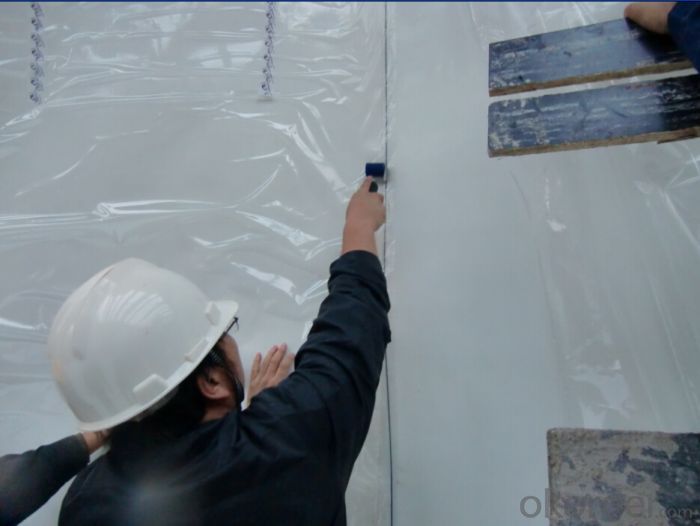
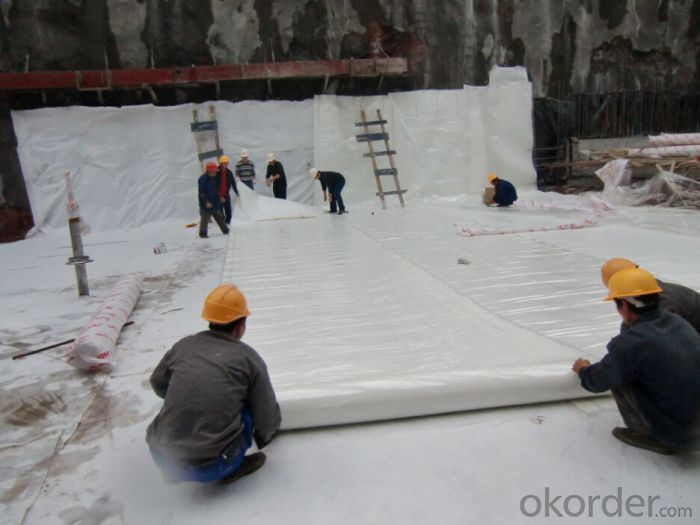
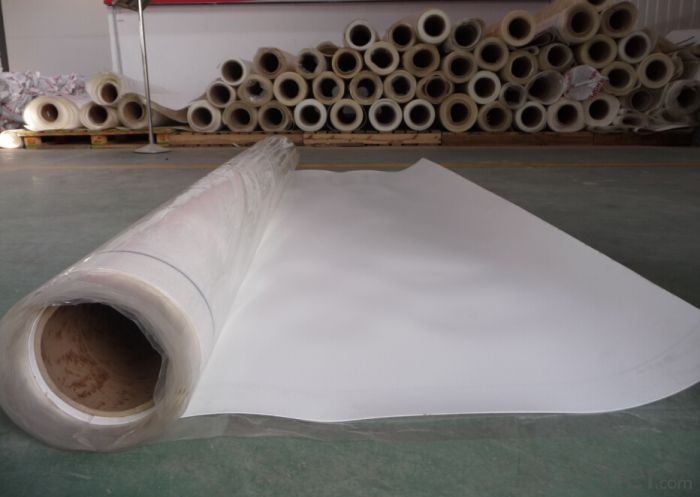
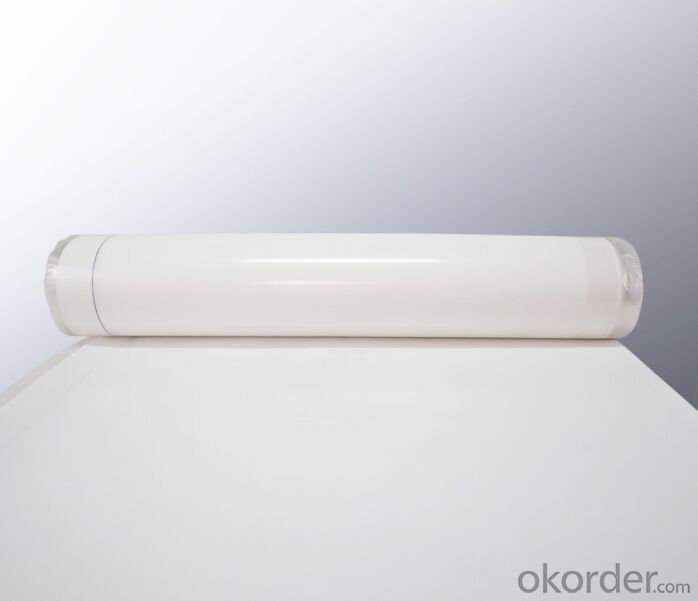
- Q: Can a waterproofing membrane be used on tunnels with soundproofing systems?
- Tunnels with soundproofing systems can benefit from the use of a waterproofing membrane. It is common practice to integrate waterproofing membranes with soundproofing systems in tunnels. This is because tunnels are prone to water infiltration, which can cause structural damage and impact the performance of the soundproofing system. By applying a waterproofing membrane, the tunnel can be shielded from water intrusion, ensuring the durability and efficacy of the soundproofing system. Moreover, the waterproofing membrane aids in maintaining a dry and comfortable environment in the tunnel, which is essential for the efficient operation of the soundproofing system. Therefore, combining a waterproofing membrane with a soundproofing system is highly recommended in tunnels to provide both water protection and sound insulation.
- Q: Can a waterproofing membrane be used in elevator pits or sump pits?
- Yes, a waterproofing membrane can be used in elevator pits or sump pits to prevent water infiltration and protect the structure from potential damage caused by moisture.
- Q: How does a waterproofing membrane compare to other waterproofing methods?
- A waterproofing membrane is highly effective in preventing water intrusion compared to other waterproofing methods. It forms a continuous barrier that is resistant to water penetration, protecting the underlying structure from moisture damage. Unlike other methods like sealants or coatings, a membrane offers superior durability and flexibility, ensuring long-term waterproofing performance. Additionally, membranes are easy to install and can cover large areas efficiently, making them a preferred choice in various construction projects.
- Q: Can a waterproofing membrane be applied over cracks or joints in a surface?
- No, a waterproofing membrane should not be applied over cracks or joints in a surface. Cracks or joints in a surface can compromise the integrity of the waterproofing system and allow water to seep through. It is important to properly repair and seal any cracks or joints before applying a waterproofing membrane to ensure effective water resistance.
- Q: Can a waterproofing membrane be used for water fountains or decorative features?
- Yes, a waterproofing membrane can be used for water fountains or decorative features. It is designed to prevent water leakage and protect surfaces from water damage, making it an ideal choice for these applications.
- Q: Is the asphalt waterproofing membrane facing the side?
- Because there are many types of self-adhesive waterproofing membrane, their use and construction methods are different, there are two main methods. 1, the normal self-adhesive paving method: the film directly paving or polymer cement cement wetting method, paste in the grass-roots level. The bottom of the floor floor of the building, in the concrete cushion with cement mortar leveling, and then the coiled surface of the membrane down, paste in the leveling layer, the roll surface pouring 50 thick stone concrete protective layer, Floor concrete. Wall construction, the film directly attached to the basement wall panels, and then do the protective layer on the outside. Commonly used modified asphalt self-adhesive waterproofing membrane, modified asphalt wet sheet is usually used in this method.
- Q: Can a waterproofing membrane be used on concrete slabs or foundations?
- Yes, a waterproofing membrane can be used on concrete slabs or foundations. It serves as a protective barrier against water penetration, preventing moisture-related issues such as leaks, mold, and structural damage. The membrane is typically applied to the exterior surface of the concrete to create a waterproof seal.
- Q: Can waterproofing membranes be used on outdoor decks?
- Outdoor decks can indeed benefit from the use of waterproofing membranes. These membranes are highly favored among deck owners due to their ability to effectively block moisture, thus safeguarding the underlying structure from harm. Comprised of durable materials like rubber or PVC, these membranes are specifically crafted to endure exposure to the elements. They are directly applied onto the deck surface, effectively establishing a watertight seal that serves as a protective shield against rain, snow, and other forms of moisture. Moreover, by preventing water damage, rot, and decay, waterproofing membranes contribute significantly to extending the lifespan of the deck. Consequently, incorporating waterproofing membranes into the maintenance routine of outdoor decks proves to be not only a sensible approach but also an efficient one, ensuring the deck's structural integrity and longevity are well-preserved.
- Q: Is a waterproofing membrane compatible with different types of flooring materials?
- Different types of flooring materials can be used with a waterproofing membrane. The purpose of a waterproofing membrane is to create a barrier between the subfloor and the flooring material, preventing moisture from causing any damage. This means that it can be used with laminate, vinyl, tile, and even hardwood flooring. By using a waterproofing membrane, the flooring material will remain protected from water damage, allowing it to last longer and maintain its appearance. However, it is important to keep in mind that specific compatibility requirements may exist for different types of waterproofing membranes. Therefore, it is advisable to consult the manufacturer's guidelines to ensure the proper installation of the chosen flooring material.
- Q: Can waterproofing membranes be used on precast concrete panels?
- Yes, waterproofing membranes can be used on precast concrete panels. These membranes are designed to provide an effective barrier against water penetration, protecting the concrete from moisture damage. They can be applied directly to the surface of precast concrete panels, ensuring their long-term durability and preventing water-related issues such as cracking, spalling, or corrosion.
Send your message to us
HDPE Self-adhesive Waterproof Membrane 1.2mm
- Loading Port:
- China Main Port
- Payment Terms:
- TT or LC
- Min Order Qty:
- 5000 m²
- Supply Capability:
- 100000 m²/month
OKorder Service Pledge
OKorder Financial Service
Similar products
Hot products
Hot Searches
Related keywords


